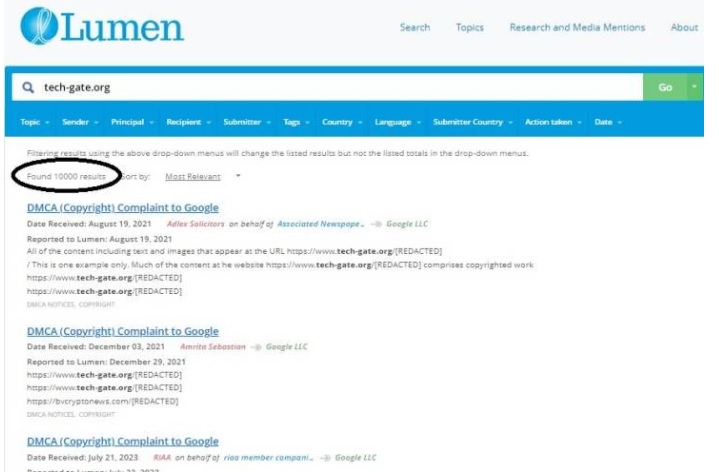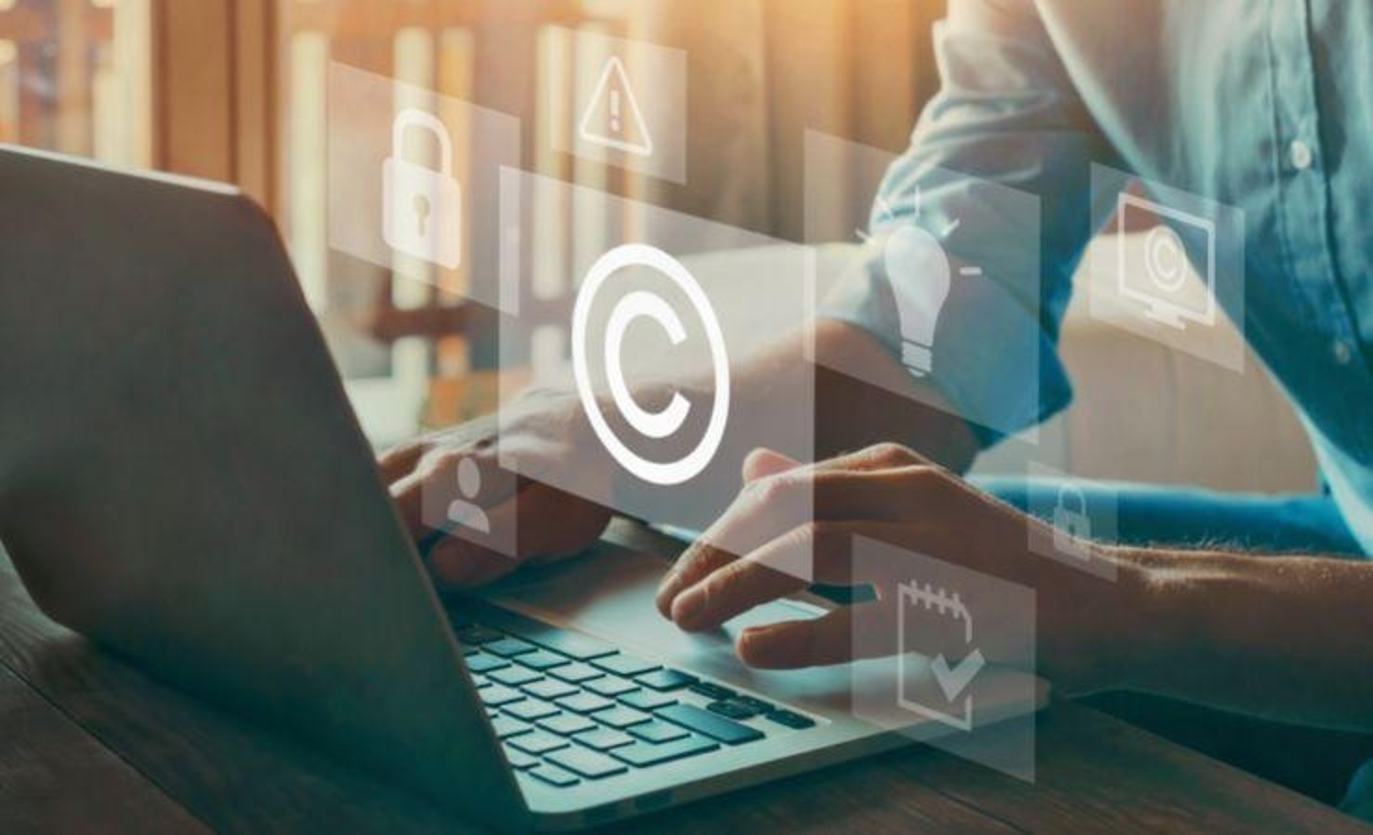Tech-Gate.org, an infamous hub for copyright infringement, has sparked renewed outrage as it persists in its illicit activities even after its hosting account was initially suspended by Hertnzer.
The website, allegedly operated by Bourbiza Mohamed, has continued to escalate its violation of DMCA copyright complaints with over 1000 DMCA copyright Infringements, raising serious questions about the efficacy of enforcement measures against such platforms.
Despite accumulating over a thousand reports on the Lumen database, Tech-Gate.org remains operational, much to the dismay of content creators and legitimate publishers who have long been at the receiving end of its exploitation.

Bourbiza Mohamed, if indeed the mastermind behind the website, has drawn widespread condemnation for his unabashed profiteering at the expense of others’ hard work and creativity.
Efforts to halt the website’s operations have so far proven futile, highlighting significant gaps in current enforcement strategies.
Mohamed, if indeed the face behind Tech-Gate.org, has become synonymous with online exploitation, shamelessly plundering copyrighted material from reputable sources and rebranding it as his own.
While it’s yet to be confirmed if Bourbiza Mohamed is the real identity behind the website, journalists and copyright experts have embarked on a mission to uncover the truth and dismantle this online parasite.
Tech-Gate.org not only serves as a repository for stolen content but also manipulates authorship and anchor texts to siphon traffic away from legitimate publishers, exacerbating the damage caused by its illicit activities.
A Persistent Challenge in the Face of Copyright Enforcement Efforts
The persistence of Tech-Gate.org in the face of hosting suspensions underscores the pressing need for more robust mechanisms to combat online copyright infringement.
Recent developments shed light on the complexities involved in combating such platforms and the need for enhanced cooperation among stakeholders.
Tech-Gate.org was previously reported to its hosting provider, Hetzner resulting in a suspension of its hosting account. However, the website has resurfaced, prompting a renewed push for its removal.
Given the challenges posed by proxy services like Cloudflare, obtaining the details of the new hosting provider is a long process. Nonetheless, recent efforts have yielded progress in this regard.
A new request has been made to Cloudflare to provide the hosting details obscured by their proxy service. Once obtained, the responsible hosting provider will be contacted to request the immediate removal of Tech-Gate.org.
However, the efficacy of such measures remains uncertain, particularly in light of the reluctance exhibited by search engines to take decisive domain-level action against content thieves instead of only deindexing single reported articles and URL’s
As content creators continue to suffer the consequences of such platforms, calls for stringent action against offenders like Tech-Gate.org grow louder.
The persistence of Tech-Gate.org underscores the urgent need for a multi-faceted approach to combat online copyright infringement. While efforts to engage hosting providers and DNS services are crucial, there is a pressing need for search engines to play a more proactive role in mitigating the proliferation of such illicit platforms.
The initial abuse reports filed with Cloudflare and Hetzner, accompanied by reference numbers (Cloudflare Complaint Ref – 7492e30525e5587a, Hetzner Complaint Ref – MU-07E4EBC3-1:1D), serve as testament to the ongoing struggle against online piracy. However, it’s recent hosting suspension hasn’t stopped the operator from reoffending.
Tech-Gate.org Operates With Apparent Impunity.
The ongoing saga surrounding Tech-Gate.org’s relentless copyright violations not only highlights the challenges faced by content creators but also raises significant questions about the role of search engines in combating digital piracy.
Despite accruing over a thousand DMCA copyright complaints and subsequent takedowns, the website continues to operate with apparent impunity, prompting scrutiny of search engines’ enforcement policies and guidelines.
The sheer volume of complaints against Tech-Gate.org begs the question: Why haven’t search engines taken more decisive action, such as permanently penalizing the entire domain?
The repeated infringement of copyright law by Tech-Gate.org should serve as a red flag for search engines to reconsider their approach to dealing with such egregious violators.
By allowing platforms like Tech-Gate.org to persist in their illicit activities, search engines inadvertently contribute to the proliferation of digital piracy and undermine the efforts of content creators to protect their intellectual property.
The failure to impose more severe penalties, such as domain-level sanctions, not only emboldens offenders but also erodes trust in the efficacy of enforcement mechanisms.
As stakeholders grapple with the complexities of online copyright enforcement, it is imperative for search engines to reassess their strategies and adopt more proactive measures to combat digital piracy.
This may include implementing algorithms capable of identifying and penalising repeat offenders, as well as collaborating more closely with copyright holders and enforcement agencies to ensure swift and effective action against repeat violators.
The case of Tech-Gate.org serves as a sobering reminder of the persistent challenges posed by online piracy and the urgent need for concerted efforts to protect the rights of content creators.







